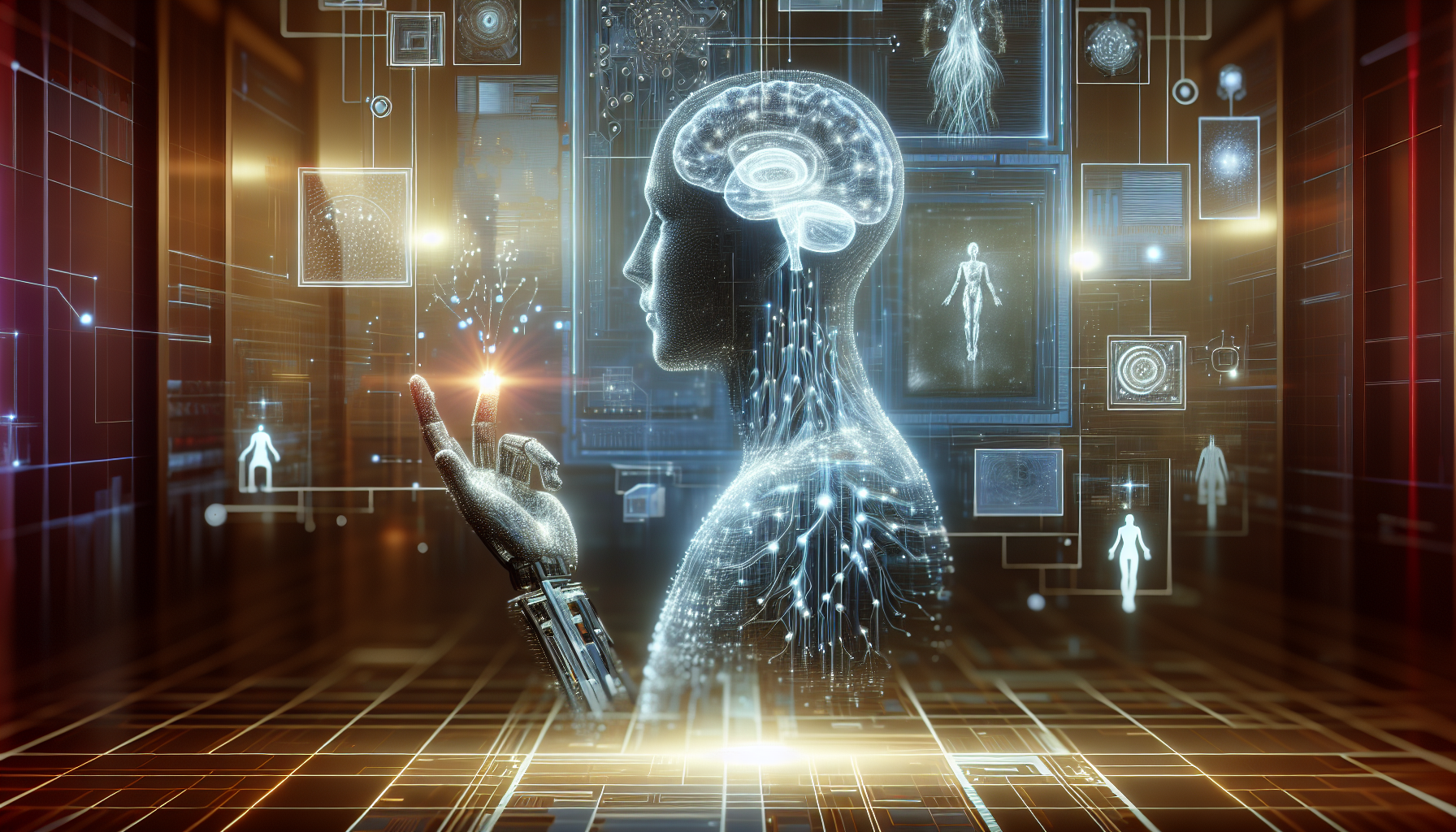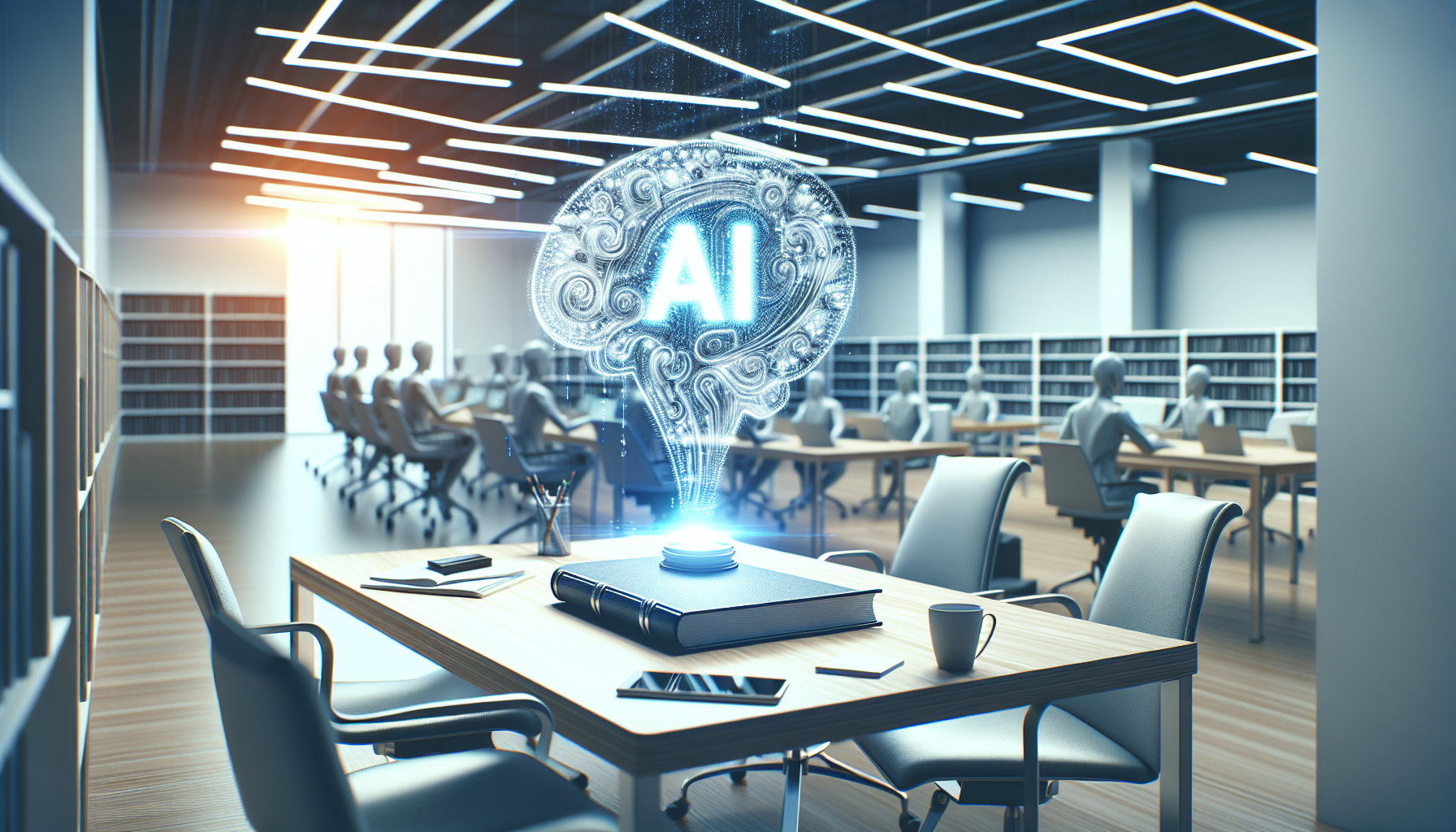
AI Time Travelers: How Artificial Intelligence Makes Accessibility a Laughing Matter
September 28, 2025
Picture this: It’s a typical day in the not-so-distant past, and you’re trying to navigate life with a disability. You’re armed with a trusty cane that doubles as a sword against unruly tree roots, a pair of glasses that refuse to stay on your nose, and a hearing aid that picks up more static than sound. Enter artificial intelligence, not with the fanfare of a hero, but with the subtlety of a cat knocking things off a table. Yet, its impact on accessibility has been nothing short of revolutionary—or at least as revolutionary as a robot learning to dance.
Let's take a trip down memory lane, back to a time when “AI” was more sci-fi buzzword than reality. Back then, our idea of intelligent assistance was limited to clunky gadgets and devices that seemed to have a mind of their own—mostly a mind bent on mischief. Remember the early speech recognition software? It had a knack for turning “Call Mom” into “Send bomb.” Not the best option for those hoping to maintain peaceful family relations.
Fast forward, and AI has become quite the seasoned traveler in the realm of accessibility. We've moved from those early, awkward beginnings to voice assistants that can understand even the most cryptic of accents and text-to-speech programs that no longer sound like they're narrating a horror movie. These AI systems are now the helpful companions that many individuals with disabilities rely on, proving that, yes, technology can learn and improve—much like a teenager with chores.
One can't discuss AI and accessibility without mentioning the role of computer vision, which has turned out to be the superhero of visual impairments. Imagine a world where you could point your phone at a menu and it would read it to you, saving you from the embarrassment of accidentally ordering the restaurant’s infamous “mystery meat.” Thanks to AI, this is no longer a flight of fancy but a reality that’s as delicious as it is convenient.
AI’s historical journey through accessibility is sprinkled with tales of triumph and the occasional misstep. Take, for instance, the early attempts at translating sign language into text via AI. The results were often as reliable as asking a mime for directions. But like a seasoned stand-up comic, AI learns from its mistakes, eventually crafting systems that can interpret sign language with impressive accuracy. It’s as if AI finally found its comedic timing.
Speech-to-text technology has also come a long way, evolving from a semi-useful feature to an indispensable tool that empowers individuals who are deaf or hard of hearing. Where once there was a cacophony of errors, now there’s the sweet sound of comprehension. These systems have grown sophisticated enough to distinguish between a sneeze and a sentence, which is a win for anyone who’s ever tried to explain a typo born from an unexpected cough.
Of course, the road to accessibility hasn’t been without its bumps. There’s the story of autonomous vehicles, which promised to be the ultimate freedom for those unable to drive. Yet, these cars have occasionally shown the spatial awareness of a toddler in a bumper car. But fear not, for AI engineers are hard at work ensuring that these vehicles can tell the difference between a pedestrian and a particularly lifelike mannequin.
Perhaps the most heartening aspect of AI’s role in accessibility is its ability to personalize assistance. Instead of a one-size-fits-all approach, AI adjusts to individual needs, like a tailor-made suit that fits just right—if suits could also remind you to pick up milk on the way home. This level of customization turns AI from a helpful gadget into a delightful companion, one that’s always ready with a well-timed reminder or a gentle nudge in the right direction.
As we marvel at the strides AI has made in enhancing accessibility, it's worth pondering where it will lead us next. Will we see AI systems that can read our minds, ensuring we never forget a friend’s birthday again? Or perhaps a future where AI can translate the universal language of sarcasm into something everyone can understand? The possibilities are as vast as they are amusing.
In the end, AI’s journey in accessibility is a testament to human ingenuity and the never-ending quest for improvement. It’s a narrative that continues to unfold, with each chapter more exciting—and humorous—than the last. So, what's next on this AI adventure? That’s a story still being written, and you might just be part of the punchline.


